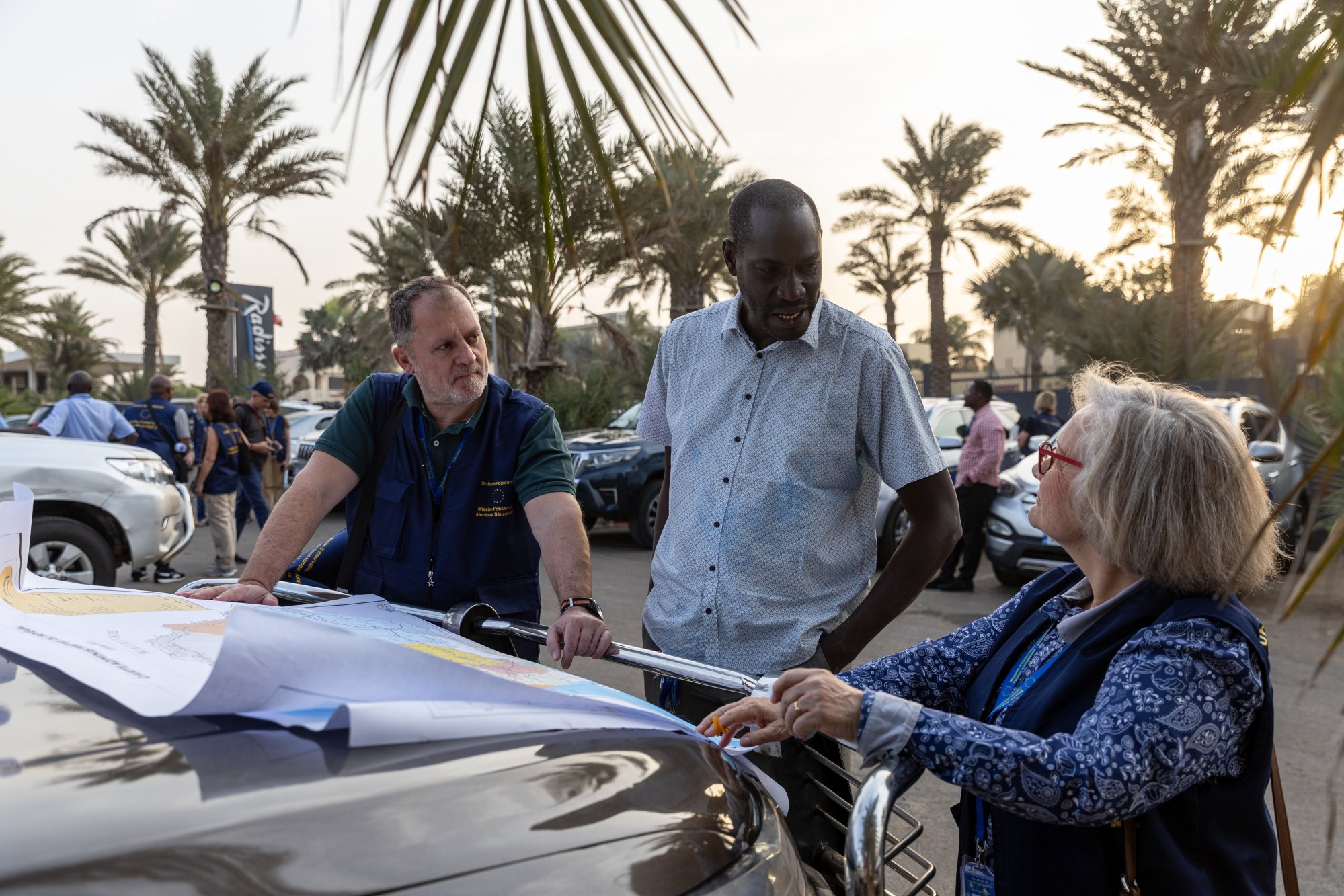
Senegal’s Macky Sall postpones presidential poll in move critics say amounts to ‘institutional coup’
- The decision, which follows a controversy over the exclusion of some prominent contenders from the poll, which is in less than a month
- Mack himself is not running for a third term, but the delay puts the country in uncharted constitutional waters and could prove a threat to stability
President Macky Sall postponed Senegal’s planned February 25 presidential election, announcing in a televised address to the nation that he had cancelled the relevant law due to electoral issues he warned would fuel disputes.
With little more than three weeks to go before the vote, the unprecedented step on Saturday of delaying the poll, to an unspecified date, pitches Senegal into uncharted constitutional waters that some opposition and civil society groups said amounted to an “institutional coup”.
One opposition coalition has already vowed to challenge the move in the courts, raising the prospect of a protracted legal battle that could further muddy the democratic outlook.

Sall’s decision follows the constitutional council’s January decision to exclude some prominent contenders from the electoral list, which has fanned discontent about the election process.
“These troubled conditions could seriously undermine the credibility of the ballot by sowing the seeds of pre- and post-electoral disputes,” Sall said in his address.
He did not set a new date for the vote, but said a parliamentary inquiry had been set up to look into how candidates were verified and any other issues, and that a national dialogue would also take place to ensure the eventual election is free, fair and transparent.
He said the postponement would not affect his decision not to run for a third term – an issue that has helped provoke recurrent and sometimes deadly protests in what is normally one of West Africa’s most stable democracies.

The US State Department’s Africa bureau said “we are deeply concerned about the disruption to the Presidential electoral calendar”, in a post on X that said the bureau had noted Sall’s reiteration he would not run again.
The capital Dakar appeared calm after Sall’s announcement, with no immediate sign of people taking to the streets in protest.
The F24 platform, a large group of civil society organisations behind past demonstrations, said in a statement it would hold an emergency meeting to decide how to respond to the “institutional coup d’etat that is taking shape”.
What happens next is unclear. Senegal has never before delayed a presidential vote. Its four largely peaceful transitions of power via the ballot box since independence from France in 1960 have built up its reputation for stability.
Ndiack Fall, law professor at Dakar’s Cheikh Anta Diop University, told Reuters that, according to the constitution, Sall’s mandate ends on April 2 after which the president of parliament should be in charge if the election has still not been held.
Opposition candidate Khalifa Sall – no relation to Macky Sall – said he would refuse to recognise Sall as president after April 2 and promised to mount a legal challenge against what he also called an institutional coup.
“Today we feel pain and sadness for our country and our democracy,” he said at a press conference.

The opposition Senegalese Democratic Party (PDS), whose candidate Karim Wade was among those excluded from running, had formally requested a postponement on Friday.
The excluded candidates, who include opposition firebrand Ousmane Sonko, say the rules for candidacy were not applied fairly. The authorities deny this.
“Now that [the postponement] has been confirmed, this will likely relapse the country into a political uncertainty and revive civil unrest threats,” said West Africa political analyst Wendyam Herve Lankoande.
Senegalese voters were meant to choose a successor to President Sall. For the first time in Senegal’s history, the incumbent was not on the ballot. His hand-picked successor, Prime Minister Amadou Ba, was among 20 candidates cleared to run.

